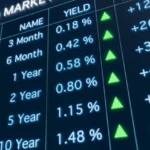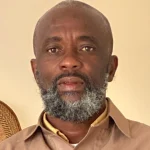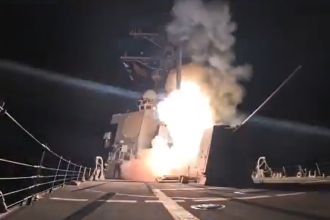A former Director of the National Security Agency (NSA), a national-level intelligence agency of the United States Department of Defence, has suggested that recent tensions between the United States (US) and Iran were signals of increase in cyberattacks in the world.
According to Mr Mike Rogers, who is also a former Head of the US Cyber Command, there was therefore the need for closer cooperation between governments all over and the private sector to be able to fully combat the current cybersecurity threats.
Mr Rogers made the suggestion on Tuesday when he spoke at the 2019 Cyber Week conference in Tel Aviv in India.
Cybersecurity issues
Cyber Week is a large annual international cybersecurity event, organised and hosted since 2010 at Tel Aviv University in Israel and brings leading experts from around the world in the fields of cybersecurity, government, intelligence, professionals, policymakers, entrepreneurs, investors and academics together to brainstorm on the future of technology and how to secure operations.
This year’s weeklong conference featured panels, workshops, summits, and seminars on topics such as how to offer cybersecurity in artificial intelligence (AI), blockchain (Distributed database existing on multiple computers at the same time), aviation, financial technologies (fintech), digital healthcare, the cloud, smart cities, cybercrime and more.
This is because, according to experts, the wave of crime perpetrated by smart people in the cyberspace was gradually increasing and there was therefore the need for all stakeholders to brainstorm and exchange knowledge on how to secure the cyber space.
Over 8000 attendees from 80 countries were at the conference which was hosted by the Blavatnik Interdisciplinary Cyber Research Center (ICRC) in India, Yuval Ne’eman Workshop for Science, Technology and Security, Tel Aviv University, the Ministry of Foreign Affairs, and the National Cyber Directorate at the Israeli Prime Minister’s Office.
Cybersecurity role
In a fireside chat at the conference on Tuesday, between Mr Mike Rogers and Mr Nadav Zafrir, also a former Commander of Israel’s elite intelligence Unit 8200, the two discussed the recent tensions between the US and Iran and what role cybersecurity plays.
When Rogers was asked to comment on the cyberattacks that Iran and the US are carrying out on each other in the midst of the nuclear tensions, he said, “we see that cyber, which has been an ongoing part of daily competition between states, will be part of the conflict between nations.”
He added, “the US and Iran both view cybersecurity as a potential response option that offers lower risk than a kinetic or military strike. So we will continue to see more of this because it doesn’t necessarily trigger an escalatory response from the other side.”
Continuing, he said, “Look at the targets they went after – the US used cyber to respond against [Iranian] military targets. Iran chooses the cyber response option to go not only after US government entities, but also entities in the private sector.”
On the changing role that the private sector plays in cyberwarfare, Mr Rogers noted that, “in the West, particularly in the US, we’ve always drawn a line between government and the private sector. However, we see now that other countries don’t necessarily see this distinction. So for the private sector, this episode with the Iranian response, shows that they will be viewed by some as an extension of the nation state.”
Major threats
On major threats, Mr Rogers said, “the threat is clearly going to get more complicated. The attack surface is growing. You look at the power of AI and machine learning and they’re going to offer great defensive capabilities but also offer attackers many more options. I find myself in the private sector now and one of my takeaways is – why aren’t we using more integrated solutions between the government and the private sector? ….Why don’t we learn from every instance in cybersecurity? We need a model in cybersecurity where the pain of the one leads to the benefit of the many.”
At the end of the conversation, the roles were reversed and Mr Rogers asked Mr Zafrir: You were part of this ecosystem in Israel both for government and the private sector. How do you see the Israeli cybersecurity ecosystem changing in the next five years?
In his response, Mr Zafrir said, “Israel is a very small country, we’re about the size of New Jersey and it’s surrounded by very large countries, it’s a tough neighborhood. So we’ve learned to protect ourselves by having mandatory military service. It’s not about having the best technology, or more money, or more people – it’s about understanding we are in a learning competition. If we are to prevail it’s because we can learn faster, change faster. In my former unit, 8200 we can find the people that will learn things the fastest, that’s why we have the density of talent. Israel has a big part to play in this game – we’re leveraging some of our heritage and our problems to put trust back into the system and I’m certain we can prevail.”
















